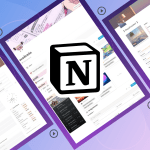Introduction.
If you’re looking to share your creativity, help others stay organized, or simply make some extra income, selling Notion templates on Gumroad could be a great option. You’ve probably heard of Notion – the versatile productivity tool that’s taken the digital world by storm.
It’s a tool that lets users create everything from task managers and to-do lists to personal knowledge databases.
And what makes Notion even better is the huge market for templates – pre-made setups that make it easier for people to get started.
Selling Notion templates can be a solid source of passive income. All you have to do is create the templates, list them on Gumroad, and promote them.
Once people find your templates useful, you’ll start making money without having to constantly trade time for money. But how do you even get started?
In this article, I’ll walk you through everything you need to know to successfully sell Notion templates on Gumroad.
From setting up your Gumroad account to creating templates that people will love, I’ll give you a clear, easy-to-follow guide.
You’ll also learn about pricing, marketing, and answering some common questions people have about selling on Gumroad. So let’s jump right in!
Why Sell Notion Templates?
You might be wondering, “Why sell Notion templates in the first place?” Well, Notion has become one of the most popular productivity tools out there, with over 20 million active users as of 2024.
People love using Notion because of its customizability and flexibility. However, not everyone has the time or patience to design their templates. That’s where you come in!
Selling Notion templates allows you to meet a growing demand by helping people get more out of their Notion experience without having to start from scratch.
Additionally, Gumroad makes it incredibly simple to set up your digital storefront and start earning money.
The best part? You don’t need to deal with inventory or shipping. Once your templates are live, all you need to do is promote them and watch the sales come in.
Step 1: Set Up Your Gumroad Account
Before you can start selling your templates, you need to create a Gumroad account. The process is pretty straightforward:
- Go to Gumroad’s website: Head over to gumroad.com and sign up for a free account.
- Fill in Your Details: Gumroad will ask for your name, email, and a password. Once you fill that out, you’ll have access to your Gumroad dashboard.
- Set Up Your Profile: This is where you can add a bio, a profile picture, and a cover image. Make sure to make it as personal as possible – customers love connecting with creators, and a well-crafted profile can make a big difference.
- Payment Setup: To get paid, you’ll need to link a PayPal or bank account. Gumroad will send your earnings to the linked account every week, which is pretty convenient.
And that’s it! You’re now set up and ready to start selling your Notion templates.
Step 2: Create Your Notion Templates
Now comes the fun part – creating the actual templates you’ll be selling! The goal here is to create templates that are not only useful but also visually appealing and easy to customize. Here are some tips to make your templates stand out:
- Think About Your Audience: Before you start designing, ask yourself, “Who is this template for?” Is it a student looking for a study planner? A business owner needing a project management system? A fitness enthusiast tracking their workouts? Tailor your design to your audience’s needs.
- Make It Easy to Use: Notion can be overwhelming for new users. Keep your templates simple and intuitive. Add clear instructions or a guide on how to use the template if needed.
- Create a Unique Design: Notion allows for a lot of creativity with colors, fonts, and layouts. Play around with these elements to make your template look attractive. A polished, well-designed template will stand out in a crowded marketplace.
- Test Your Templates: Once you create your template, make sure it works well. Test it yourself or have others test it to ensure everything is functional and easy to navigate.
- Export and Share: Once you’re happy with your template, you’ll need to export it as a Notion file. Notion allows you to easily share templates with a unique link. This link can be uploaded directly to Gumroad.
Step 3: Set a Price for Your Templates
Pricing your Notion templates can be a tricky task. You want to make it affordable for your customers, but you also want to earn a fair amount for your time and effort. Here are a few pricing strategies to consider:
- Research Competitors: See what other Notion template sellers are charging for similar templates. If you’re just starting, it’s a good idea to keep your prices on the lower end to attract buyers.
- Offer Bundles: Instead of selling individual templates, you could create bundles and offer them at a slightly higher price. People love a good deal, and bundles can increase the average sale.
- Offer Discounts: You can also run promotions or offer discount codes for a limited time to increase sales. Gumroad allows you to create discount links that automatically apply the discount when the customer checks out.
- Value Over Time: Don’t forget to account for the time it takes to create and test your templates. Be sure you’re comfortable with the amount you’re charging, and don’t undervalue your work.
Step 4: Upload Your Templates to Gumroad
Now that you have your templates ready, it’s time to upload them to Gumroad. Here’s how to do it:
- Create a New Product: In your Gumroad dashboard, click “Add a Product” and choose the “Digital Product” option.
- Upload Your Template: You’ll be prompted to upload your Notion template. This can be a direct download link or a file if you’re offering multiple files in your bundle.
- Add a Description: Write a clear, engaging description of what your template does and how it can help users. Be specific about the features, and include any important details like instructions or special tips.
- Set Your Price: Choose your price or set up a “pay what you want” model if you prefer. You can also offer different payment tiers or discounts here.
- Publish Your Product: Once everything looks good, hit “Publish,” and your product is live!
Step 5: Promote Your Templates
Now that your templates are live, it’s time to get the word out! Here are a few ways to promote your Notion templates:
- Leverage Social Media: Share your templates on platforms like Instagram, Twitter, TikTok, and LinkedIn. Showcase how your templates work and the value they provide. Use relevant hashtags like #NotionTemplates, #NotionSetup, or #ProductivityTools to help people find your posts.
- Create a Website or Blog: A simple website or blog can help boost your credibility and allow you to share more about your products. You can link to your Gumroad page from here and even offer free content like tips and tricks for using Notion.
- Collaborate with Influencers: Find influencers or creators who also use Notion and see if they’d be willing to promote your templates in exchange for a commission or a free template.
- Offer Free Templates: Offering a free template as a lead magnet can help you build your audience. You can then upsell your paid templates to those who downloaded the free version.
FAQs
1. How much can I realistically make selling Notion templates?
The income you can make depends on your effort and marketing. Some creators earn hundreds of dollars a month, while others make thousands. It’s important to be consistent, keep creating high-quality templates, and actively promote them.
2. Do I need any special skills to create Notion templates?
Not at all! If you can use Notion and have a creative mindset, you can create templates. The key is to make sure they’re functional and useful to your audience.
3. Can I sell my templates anywhere else?
Yes! While Gumroad is a great platform for selling digital products, you can also sell on Etsy, your website, or other digital marketplaces. Just make sure to read each platform’s terms before listing your products.
Conclusion
Selling Notion templates on Gumroad is an exciting opportunity to turn your creativity into a source of income.
By following these steps, you can build a successful template business, helping others while making money in the process.
The best part is that you don’t need a massive audience to start – just a good idea and a little marketing effort.
So, what kind of Notion template are you going to create first?





GIPHY App Key not set. Please check settings